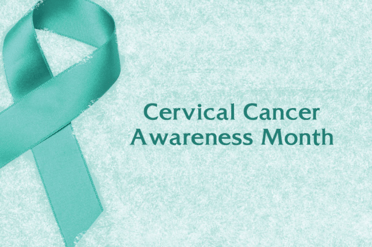 January is Cervical Health Awareness Month. More than 14,000 women in the United States are diagnosed with invasive cervical cancer each year, but the disease is preventable with vaccination and appropriate screening.
January is Cervical Health Awareness Month. More than 14,000 women in the United States are diagnosed with invasive cervical cancer each year, but the disease is preventable with vaccination and appropriate screening.
Cancer is a disease in which cells in the body grow out of control. Cancer is always named for the part of the body where it starts, even if it spreads to other body parts later.
Cervical cancer is a type of cancer that occurs in the cells of the cervix — the lower part of the uterus that connects to the vagina.
Symptoms
Early-stage cervical cancer generally produces no signs or symptoms.
Signs and symptoms of more-advanced cervical cancer include:
- Vaginal bleeding after intercourse, between periods or after menopause
- Watery, bloody vaginal discharge that may be heavy and have a foul odor
- Pelvic pain or pain during intercourse
Causes
It isn't clear what causes cervical cancer, but it's certain that human papillomavirus (HPV) plays a role. HPV is very common, and most people with the virus never develop cancer.
When exposed to HPV, the body's immune system typically prevents the virus from doing harm. In a small percentage of people, however, the virus survives for years, contributing to the process that causes some cervical cells to become cancer cells.
You can reduce your risk of developing cervical cancer by having screening tests and receiving a vaccine that protects against HPV infection.
Other things can increase your risk of cervical cancer—
- Having HIV (the virus that causes AIDS) or another condition that makes it hard for your body to fight off health problems.
- Smoking.
- Using birth control pills for a long time (five or more years).
- Having given birth to three or more children.
- Having several sexual partners.

